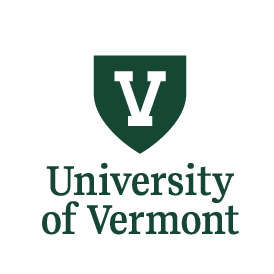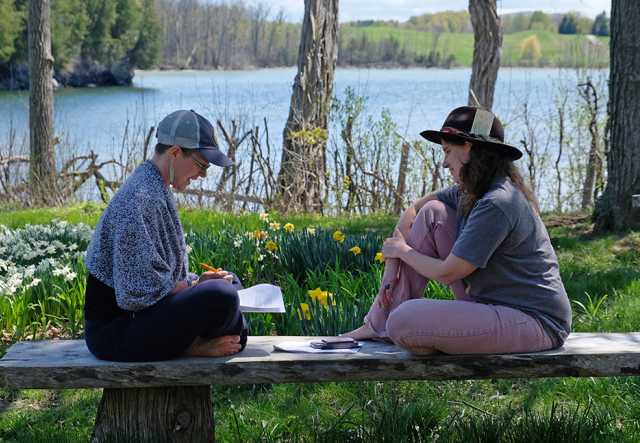Education for Sustainability Highlighted on "Across the Fence"
Education for sustainability gives students an invitation to explore their communities, says teacher Julie Norman. Julie (a current student in our Education for Sustainability Graduate Certificate) and Shelburne Farms Institute for Sustainable Schools educator Aimee Arandia Østensen sat down with Across the Fence host Fran Stoddard to talk about the possibilities of education for sustainability.
Watch the full interview below, or read on for excerpts from their conversation.
How would you define education for sustainability?
Aimee: We think about education for sustainability within the desired outcome. So, if the desired outcome is to create thriving, dynamic, and sustainable communities, then what education for sustainability does is prepare students to have the skills, the knowledge, and the values to make decisions so that we can have those sustainable communities today and in the future.
How does education for sustainability look and feel different from traditional education?
Julie: When I think about education for sustainability, I think about giving children an invitation to explore their communities. They’re exploring their social communities, thinking about that in concentric rings from the smallest community of their family growing outward to their neighborhood and their town and their state, nation, and planet. And I also think about inviting them to explore their natural communities, the many ecosystems that surround them. It’s hands-on, place-based learning that is very interdisciplinary.
Why were you drawn to this work?
Julie: There’s a huge opportunity to not only help children live their best lives but be engaged in work that creates future voters, farmers, and law makers who are critical thinkers, who are systems thinkers, who think about how their actions impact others. When I was drawn to education for sustainability, I realized that thinking through systems learning with children was a real avenue to help them progress to become members of communities that consider collective wellness rather than just individual success.
Shelburne Farms partners with UVM to offer programs including the Education for Sustainability Graduate Certificate. Julie, you’re one of those graduate students. Why is that certification important to you?
Julie: Not only has this program through UVM and Shelburne Farms helped deepen my understanding of systems thinking and sustainability, but it has provided the space and time and encouragement I’ve needed to really dive into my own actions, to really view myself as a changemaker, to move from somebody who is sitting in a zone of frustration and worry to progress into somebody who is thinking about action and improving systems.
Shelburne Farms now has the Institute for Sustainable Schools, which is just incorporating everything we’ve been talking about, right?
Aimee: Absolutely. It’s a big umbrella to hold all of the programs for professional learning that are available to teachers like Julie that they can choose from, depending on the pathway of what’s interesting to them, whether it’s food systems education or climate change education or place-based education.


